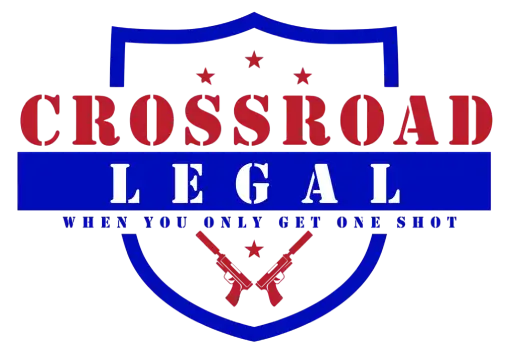Illinois’ Newly Created FOID Card Review Board Already Lagging in Response Times

On January 1, 2023, Illinois created a FOID Card Review Board to review incoming appeals. In Illinois, all residents who wish to possess, own, or even shop for a firearm must have a Firearm Owner’s Identification Card (FOID). A FOID card is similar to a driver’s license. A small hard plastic card with a photograph, an issue date and address is mandatory in the state in order to even possess a single shotgun shell. While this entire legal scheme is patently unconstitutional from its inception, it remains the law in Illinois. Naturally, the newly formed Board is doing just as poorly in its handling of the backlog of appeals as Illinois State Police were doing previously. Let’s break down just how badly ISP handles its duties in the handling of appeals.
What is the FOID Card Review Board
The newly formed Review Board is a civilian board comprised of 7 members who are active or retired judges, law enforcement, and mental health experts. The exact composition does not appear to be listed in the statutes or on ISP’s website; however, it is likely that at least one member of the board will be a psychiatrist or psychologist, due to the large number of revocations and denials due to alleged mental health hospitalizations.
When applying for an appeal, individuals must submit their appeal to the Board now, unless they meet one of the exceptions that allows a direct appeal to a circuit court. Those exceptions are for denials based on:
- Conviction relating to methamphetamine
- Conviction relating to cannabis
- Conviction relating to a forcible felony
- Individual appealing is law enforcement
- Several other limited grounds for direct appeal
If none of these apply, the individual must appeal to the newly formed Review Board. Only if the Board again rejects or denies the appeal may the individual then appeal to the Circuit Court in the county where they reside.
FOID Appeals Prior to Creation of the Board
Before January 1, 2023, most appeals of FOID denials and revocations had to be sent to the Director of ISP, Firearms Services Bureau. These administrative appeals did not allow for in-person hearings, there was little due process, and you never knew who was actually making the decision – ostensibly it was a State Trooper – but there was no direct contact. Further, decisions were rarely quick. In many cases, ISP just ignored appeals. Certain cases could be appealed directly to a local county court, but those were limited to drug related charges and forcible felonies.
FOID Appeals After Creation of the Board
The General Assembly passed legislation in 2022 which went into effect on January 1, 2023. This created the Appeals Board. However, State Police even acknowledges publicly that the Appeals Board didn’t even begin reviewing appeals until sometime in February. According to data directly from ISP, the new Review Board received 242 cases transferred from ISP, and no actions were taken on those files in January. The following is all that has happened with the Board as of April 1, 2023:
February – 7 cases were presented to the Board, 1 was granted relief, 3 were asked to provide more information, and 3 were offered hearings before the Board.
March – 13 cases were presented to the Board, of which 9 were granted relief, 3 were asked for additional information, and 1 requested additional time after being denied.
This means that in the first three full months since the Board became effective, only 10 out of 20 people were granted relief. That is a 50% success rate. There is no data on how many were represented by attorneys, nor does the Board provide statistics on the types of appeals (i.e. were they based on orders of protection, criminal convictions, felonies, mental health commitments, etc.?) More importantly, perhaps, is the fact that this data is hidden and hard to find. You can search the internet endlessly and not find the data. But the law requires ISP to publish the data publicly. In 430 ILCS 65/10(a-5)(9), state law reads,
“The Board shall report monthly to the Governor and the General Assembly on the number of appeals received and provide details of the circumstances in which the Board has determined to deny Firearm Owner’s Identification Cards under this subsection (a-5). The report shall not contain any identifying information about the applicants.”
Sadly, the statute does not tell ISP where they must publish it or how to make it available to the public. Therefore, the data remains largely hidden. See the attached report from April 1, 2023.
Too Many Changes Create a ‘Moving Target’ For Appellants
While a Review Board may be a good idea in the long run, it does leave some serious questions for attorneys who handle these appeals. First, how long before the state makes yet another change? In 2020, the state created the “Office of Firearms Safety,” which was tasked with handling these appeals. It began developing protocols and procedures for handling appeals. Allegedly, that office reduced the backlog of appeals by 17%, according to a press release at the time. According to ISP, the “vast majority of appeals” were finished in 60 days or less. Anecdotally, our firm can attest that of the scores of appeals we’ve submitted, we’ve never had one reviewed or decided in 60 days or less. Therefore, we must question the truth and transparency of these claims. It would truly be nice if ISP was held accountable for providing evidence of their claims.
Sadly, in less than 2 years, the General Assembly passed a law creating the newly formed FOID Review Board to replace much of that office’s tasks – including appeals.
Where Things Stand for Appeals Today
At the moment, Crossroad Legal is treating all appeals that do not qualify for direct circuit court filing as though they go to the Board. Appeals are properly filed by both priority mail with tracking and via email to the email address provided by the State Police. Since the Board was created, we’ve handled 22 appeals (in process or filed). We’ve yet to receive any responses or decisions from the Board.
Final Word on FOID Reviews
The Board is supposed to reach a decision within 60 days of receipt. However, there is no guidance in the statute for situations where the Board fails to make a decision at all or where the Board is silent for many months following its 60-day deadline. Our office has a current case that we anticipate will end up before the Illinois Appellate Court in the Fifth District. The case involves a FOID revocation based on a non-violent 25-year old felony conviction for driving on a suspended license. Our client has no other criminal history. The case was appealed and ISP took nearly 9 months without a response, before we filed an appeal in court. The Illinois Attorney General immediately appeared on behalf of the State Police and has asked the matter be dismissed due to not exhausting remedies through ISP – a concept which would be fine if ISP actually communicated and reviewed appeals in a timely manner. If the case succeeds at the circuit court level, it will be a great victory for our client.
However, we are well aware that whether we win or the State does, the matter will necessarily be appealed so the appellate court can decide as a matter of law whether ISP’s failure to timely render a decision on an appeal can be considered a denial, such that the applicant can then file in court and effectively move the matter forward before a judge.
At Crossroad Legal, we are aware that many people are frustrated by the process and hoping to get quick relief. We wish we could guarantee fast results, but unfortunately, Illinois changes the law every few months, and the Board does not appear to be handling appeals in a timely fashion. We will continue to fight the good fight on behalf of our clients and the Second Amendment. Our office offers consultations on FOID Appeals for just $75, and for those who need help, we offer two options – a retainer-based full-service representation or pay-as-you-go advice. Clients can simply book an appointment online, and we can coach you through your appeal on an hourly basis, or we can handle everything for you. It’s up to you. To get started, BOOK NOW to speak with an experienced gun rights lawyer in Illinois.
